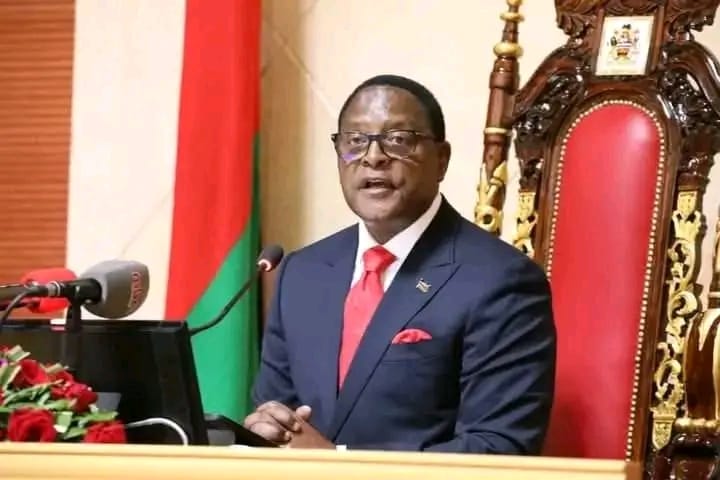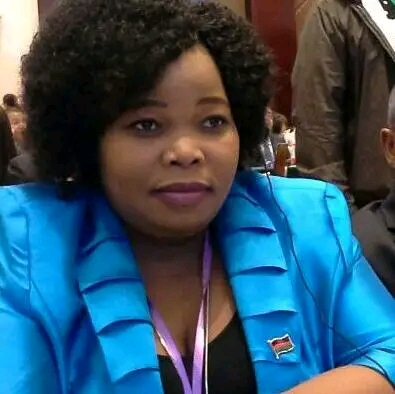By Burnett Munthali
Renowned political scientist Dr. George Phiri has sharply criticized President Lazarus Chakwera’s recent State of the Nation Address (SONA), describing it as a work of fiction rather than a truthful account of Malawi’s progress. Speaking in an exclusive interview with Capital Radio on Sunday, February 16, 2025, Dr. Phiri expressed his deep concern over what he called a growing culture of deception in political leadership.
“Why should leaders tell lies that they have done something when they haven’t?” he questioned. His remarks were in direct response to the SONA delivered by President Chakwera in Parliament on Friday, February 14, 2025, in which the President outlined various development projects allegedly completed or in progress. However, upon closer scrutiny, many of these claims have been found to be either exaggerated or entirely false.
Dr. Phiri warned that misleading the public for political gain is not only unethical but also detrimental to national development. “A nation does not develop with lies,” he stated firmly. “Development is built on truth, accountability, and hard work, not on fabricated achievements designed to impress citizens.”
The criticism comes amid widespread discontent from various sectors of society, with opposition leaders, civil society organizations, and ordinary Malawians questioning the credibility of President Chakwera’s claims. Some of the disputed assertions in the SONA include reports of new healthcare facilities, road infrastructure projects, and economic growth figures that do not match the reality on the ground.
Dr. Phiri emphasized that misleading the public is a dangerous practice that erodes trust in government institutions. He noted that once citizens realize they have been deceived, their confidence in leadership diminishes, making it difficult for the government to rally support for future initiatives.
He pointed out that this is not the first time Malawian leaders have been accused of making false claims. However, he argued that in the past, there were leaders who preferred to let their achievements speak for themselves rather than fabricate progress.
Dr. Phiri drew comparisons between President Chakwera’s approach and that of former President Bingu wa Mutharika, who once famously stated, “Let the work of my hands speak for me.”
During Bingu wa Mutharika’s tenure, he focused on tangible developments that Malawians could see and experience. His administration prioritized infrastructure, food security, and economic stability, and he allowed the results to speak for themselves rather than engaging in excessive rhetoric.
“Leaders should not belabor themselves explaining things that don’t exist,” Dr. Phiri asserted. He argued that a competent government does not need to convince the people through speeches—it simply delivers results.
Dr. Phiri urged President Chakwera and his administration to adopt a more transparent approach in governance. He stressed the importance of fact-checking all official government statements to ensure that only accurate information is presented to the public.
“There is no harm in admitting that some projects are still in progress or facing challenges,” he said. “What is harmful is pretending that progress has been made when in reality, nothing has changed.”
He called on Parliament, the media, and civil society organizations to hold the government accountable for any misinformation presented in official addresses. He also encouraged Malawians to demand truth from their leaders, emphasizing that democracy thrives when citizens actively question those in power.
Dr. Phiri warned that continuing on a path of deception could have serious consequences for Malawi’s governance and political stability. If leaders make promises they cannot fulfill, public frustration will grow, potentially leading to protests and resistance against the government.
He noted that Malawians have become more politically aware and are no longer willing to accept empty rhetoric without evidence. “People are watching. They are taking notes. And they will remember these false promises when the next election comes,” he cautioned.
Dr. George Phiri’s remarks serve as a strong reminder that governance must be rooted in truth and integrity. Malawi’s development cannot be achieved through deceptive speeches or fabricated achievements. Real progress requires commitment, transparency, and genuine effort.
As pressure mounts on President Chakwera’s administration to clarify the discrepancies in his SONA, Malawians are waiting to see whether the government will take responsibility for its misleading statements or continue down a path of political deception. Ultimately, as Dr. Phiri emphasized, only honesty and real action can restore public trust and drive meaningful development in Malawi.




